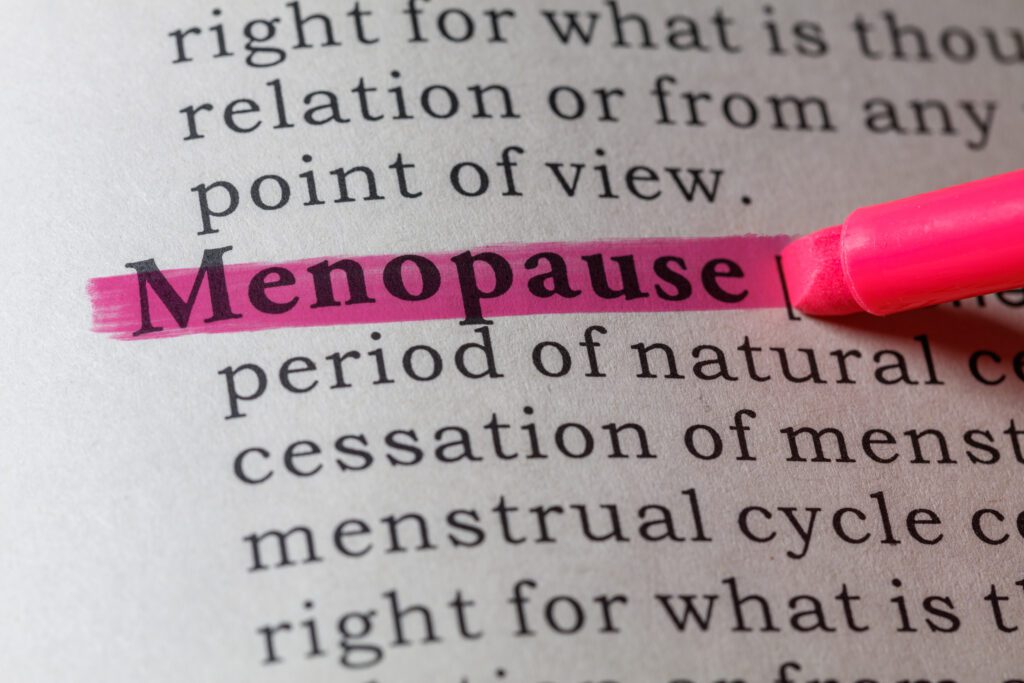Approximately 1.3 million women enter menopause annually in the United States. The average age nationally is 51 to 52 years, but that doesn’t mean early menopause isn’t entirely off the table. Almost five percent of women will start menopause as early as 40.
Have you wondered what the stages of menopause are and, more importantly, how you can manage your symptoms? Adequate nutrition, exercise, and healthy lifestyles contribute to your symptom management. Yet, women are often still left feeling miserable and need additional medical support.
We have put together a complete guide on the stages of menopause, signs to look for, and how hormone replacement therapy can help you through menopause. Get your guide to successfully navigating all the stages of menopause.
What is Menopause?
Menopause is a natural occurrence that starts when a female’s menstrual cycle ends. On average, most women start menopause between 40 and 58. Menopause is primarily characterized by its physical or mental changes.
Some of the most common menopausal symptoms include:
- Fertility Issues
- Vaginal Dryness
- Hot Flashes
- Night Sweats
- Sleep Disturbances
- Depression
- Anxiety
- Difficulty Concentrating
- Impaired Memory
- Weight Gain
- Urinary Incontinence
Menopause can last for 14 years. Its official diagnosis is 12 months after your last period. Up until menopause, it is common to have perimenopausal symptoms.
These can be changes in your period frequency or intensity, and you may also begin experiencing some of the symptoms of menopause before it actually begins, including hot flashes.
Stages of Menopause
You’ve already read about the first stage of menopause, perimenopause. There are three primary stages, although some include a fourth stage known as “early menopause.” For simplicity, let’s outline the three below:
- Perimenopause
- Menopause
- Postmenopause
Most women start perimenopause in their late 40s. It isn’t uncommon for women to begin as early as their mid-30s. The initiation of the first stage depends on lifestyle, genetics, and other medical conditions.
Signs of Perimenopause
Also known as pre-menopause, this stage is mainly characterized by producing less estrogen. It is a key sign of declining fertility, as your body stops ovulating regularly.
You should start noticing changes in how frequent your menstrual cycles are. Early stages indicate shorter menstrual cycles, while you could start missing entire months during late-stage perimenopause.
You may also begin experiencing hot flashes, vaginal dryness, and mood swings. These often persist into menopause.
Signs of Menopause
What happens during menopause? Sex hormones, including progesterone and estrogen, start declining more rapidly.
This simple but profound change is what causes many of the negative symptoms associated with menopause. You can start losing sleep and noticing changes in your energy levels and focus.
Along with some of the signs noted above, you could experience joint pain, gastrointestinal distress, and increased risk for urinary tract infections.
While it starts 12 months after your last period (or when you stop ovulating), symptoms can persist for a decade or longer. On average, most women will remain in menopause for two to ten years. What are some of the contributors?
- Genetics
- Diet
- Stress factors
- General health and wellness
Some changes are directly linked to changes in estrogen levels. It is crucial that you remember that mood changes, pain, or cognitive impairments could be underlying factors of other illnesses or diseases. You should always seek a medical professional for treatment options.
Menopause Treatments
While menopause is a natural occurrence, it doesn’t mean that you have to deal with its debilitating symptoms. Hormone replacement therapy (HRT) is the gold standard treatment medical professionals recommend.
It is safe, natural, and effective at reducing pre- and menopausal symptoms. Medical experts recommend that HRT starts before 60 in most cases. There are five main HRT options, including:
- Transdermal patches
- Topical gels or creams
- Vaginal creams
- Pills
- Pellets
The HRT type that works best for you may depend on your symptoms, medical history, and personal preference. Is HRT effective at reducing symptoms?
Researchers found that the best treatment for hot flashes, night sweats, bone loss, and genitourinary symptoms is hormonal therapy. They also recommended that patients who experience menopausal symptoms seek professional help where customizable HRT plans can be closely monitored for the best results.
Thyroid Disorders and Menopause
Thyroid dysfunctions are another occurrence that can show up during menopause. Your thyroid releases hormones that help with energy and metabolism. Changes in female reproductive hormonal patterns during pregnancy or menopause can put you more at risk for a sluggish thyroid.
Bioidentical hormones are highly effective at supporting healthy thyroid function and can improve some of the symptoms that cross over into menopause.
Signs of Post Menopause
Unfortunately, many symptoms can persist into the post-menopause stage. After the majority of menopausal symptoms pass (usually within that two to ten-year timeframe), post-menopause begins. Here are some common signs that occur in the post-menopause stage:
- Weight fluctuations
- Vaginal atrophy
- Hot flashes
- Sleep disruption
- Infertility
There is also a higher risk for osteoporosis, heart disease, and obesity. You may notice that some of these symptoms overlap with the other stages. Sleep disruption occurs at every stage of menopause, but upwards of 60% of women experience it during the post-menopause stage compared to as low as 16% during pre-menopause.
Vaginal atrophy is another symptom that occurs in 40% to 57% of women in post-menopause women compared to 15% in pre-menopause.
Start Managing Your Menopause Symptoms
HRT is a highly-recommended treatment plan for women starting their menopause journey. Changes in your reproductive hormones cause systemic changes from mood or cognition to physical symptoms.
HRT is best used in the earlier stages of menopause. Combined with other functional medicine, such as lifestyle, nutrition, and supplement advice, you can find relief from menopausal symptoms. For help getting started, find a certified provider today that is trained to help women manage their stages of menopause.







